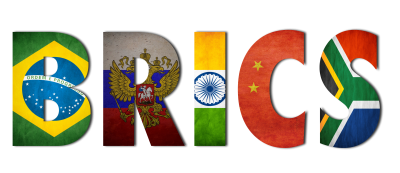Brics to Open Alternatives to World Bank, IMF

Brazil, Russia, India, China, and South Africa (the so-called Brics) are to establish alternatives to the World Bank and the International Monetary Fund, which they find too biased towards Europe and the US.
The “New Development Bank” to rival the World Bank will be launched at a Brics summit in the Brazilian city of Fortaleza next week, with all agreed except where to put the main headquarters, Russian finance minister Anton Siluanov said Wednesday (9 July).
The two options currently being considered are Shanghai or New Delhi, Siluanov said. Russia didn’t push to get the bank in Moscow, but will seek management posts instead, he said.
The project will see each of the Brics contribute €1.4 billion to the bank’s funds over the next seven years, with the bank’s maximum capital set at €73 billion. The bank will fund mainly infrastructure projects.
Other countries that want to join will be able to do so once the new bank opens for lending, in 2016, the minister added.
It will be a small rival to the €163 billion-strong World Bank, but it marks the departure of a US and Europe-dominated international financial system.
Siluanov also confirmed plans for a separate Brics project: an alternative to the International Monetary Fund (IMF).
This would be set up as a joint contingency pool between the five Brics countries to the tune of €73 billion.
“We have reached an agreement that, in the current conditions of capital volatility, it is important for our countries to have this buffer a so-called “mini-IMF” – a financial organisation which could quickly react to capital outflow, providing liquidity in hard currency, in particular in US dollars,”
Siluanov said.
The pool will become available in 2015 and will see each of the Brics countries putting in as much of a proportion of the total capital as it would be allowed to withdraw, except for China (the largest donor) and South Africa (the smallest), which will be allowed to withdraw half and double their contributions, respectively.
Brics nations have grown increasingly frustrated at the priorities of the IMF, particularly during the euro-crisis, where a disproportionate amount of the fund’s money went to bailouts in southern Europe.

